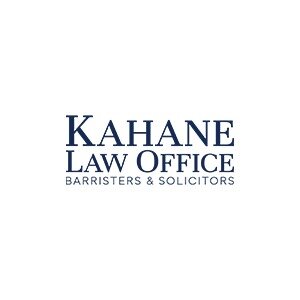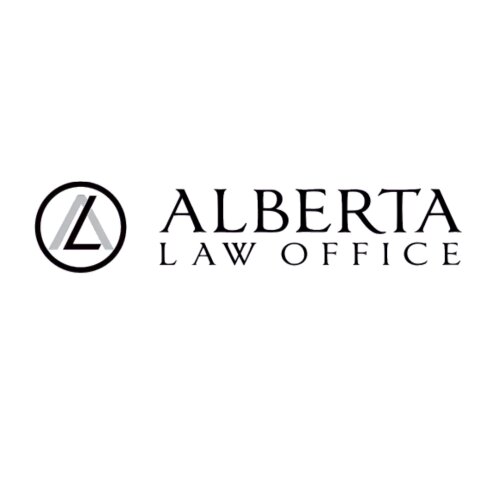Best Natural Resources Lawyers in Edmonton
Share your needs with us, get contacted by law firms.
Free. Takes 2 min.
List of the best lawyers in Edmonton, Canada
About Natural Resources Law in Edmonton, Canada
Natural Resources Law in Edmonton, Canada, encompasses a variety of legal issues related to the use and conservation of natural resources within the region. Edmonton, located in Alberta, is rich in natural resources, including oil, gas, minerals, forests, and water resources. The legal framework governing these resources involves complex regulations at federal, provincial, and municipal levels, with a focus on sustainable development, environmental protection, and economic growth. This field of law is crucial due to Alberta's significant role in Canada's energy sector, and as such, legal expertise is required to navigate the intricate laws and policies applicable to natural resource management and development.
Why You May Need a Lawyer
Individuals and businesses may require legal assistance in the field of natural resources for various reasons. Here are some common situations:
- Securing licenses and permits for resource exploration and extraction.
- Negotiating land use and resource development agreements.
- Addressing environmental compliance and regulatory issues.
- Resolving disputes over resource rights or land use conflicts.
- Understanding royalty and tax obligations associated with resource extraction.
- Engaging in mergers, acquisitions, or financing relating to natural resources assets.
- Litigating in cases of environmental pollution or degradation.
A lawyer specializing in natural resources law can help clients navigate these complex legal scenarios, ensuring compliance with applicable laws and protecting their legal rights and interests.
Local Laws Overview
The legal landscape for natural resources in Edmonton is influenced by both provincial and federal regulations. Key aspects include:
- Alberta's Mines and Minerals Act: Governing the leasing and extraction of mineral resources, including oil and gas.
- Environmental Protection and Enhancement Act: Focused on the protection and management of the environment, regulating emissions, and waste management.
- Water Act: Governing the allocation and management of water resources in Alberta.
- Public Lands Act: Managing the allocation and use of public lands for resource development.
- Federal regulations, such as the Fisheries Act and Canadian Environmental Protection Act, may also apply.
These laws aim to balance economic development with environmental protection and the rights of Indigenous peoples, requiring careful legal interpretation and application.
Frequently Asked Questions
What are natural resources?
Natural resources are materials or components that exist in nature and are valuable to humans, such as minerals, oil, gas, forests, and water.
What types of permits are required for oil and gas development?
Permits vary but often include exploration licenses, drilling permits, and environmental impact assessments approved by relevant provincial authorities.
How are Indigenous rights considered in natural resource development?
Indigenous rights are protected under various treaties and laws, often requiring consultation and accommodation in resource development processes.
What is the role of a natural resources lawyer?
They assist with legal compliance, negotiations, dispute resolution, and represent clients in regulatory or court proceedings related to natural resources.
How does Alberta ensure environmental protection in the development of natural resources?
Alberta enforces strict environmental regulations through its Environmental Protection and Enhancement Act and other legislative measures.
What are the potential penalties for non-compliance with natural resources regulations?
Penalties can range from fines, operational shutdowns, and legal actions to revoke licenses or permits.
Can a natural resource dispute be resolved outside of court?
Yes, many disputes can be resolved through alternative dispute resolution methods such as mediation or arbitration.
Are there any tax incentives for natural resource development in Alberta?
Yes, the government offers various incentives and deductions for exploration and development activities to stimulate economic growth.
What impacts do federal laws have on natural resources management in Alberta?
Federal laws impact areas like environmental protection and fisheries, requiring collaboration between provincial and federal authorities.
How can I verify a lawyer's credentials in natural resources law?
Check their membership with the Law Society of Alberta and review their experience and case history in natural resources law.
Additional Resources
For more information or assistance, consider referring to the following:
- Alberta Energy Regulator (AER)
- The Canadian Association of Petroleum Producers (CAPP)
- Natural Resources Canada (NRCan)
- The Government of Alberta's Ministry of Energy
- The Law Society of Alberta for legal professional searches
Next Steps
If you require legal assistance with issues related to natural resources in Edmonton, Canada, consider the following steps:
- Identify your specific legal needs and the area of natural resources law your issue pertains to.
- Contact a lawyer with expertise in natural resources law. Use resources like the Law Society of Alberta to find qualified practitioners.
- Schedule a consultation to discuss your situation, legal rights, and potential solutions.
- Gather all necessary documentation related to your case, including permits, agreements, and correspondence.
- Work closely with your lawyer to develop a legal strategy that aligns with your goals and complies with applicable laws.
Finding the right legal help can ensure that you navigate the complexities of natural resources law effectively and safeguard your interests.
Lawzana helps you find the best lawyers and law firms in Edmonton through a curated and pre-screened list of qualified legal professionals. Our platform offers rankings and detailed profiles of attorneys and law firms, allowing you to compare based on practice areas, including Natural Resources, experience, and client feedback.
Each profile includes a description of the firm's areas of practice, client reviews, team members and partners, year of establishment, spoken languages, office locations, contact information, social media presence, and any published articles or resources. Most firms on our platform speak English and are experienced in both local and international legal matters.
Get a quote from top-rated law firms in Edmonton, Canada — quickly, securely, and without unnecessary hassle.
Disclaimer:
The information provided on this page is for general informational purposes only and does not constitute legal advice. While we strive to ensure the accuracy and relevance of the content, legal information may change over time, and interpretations of the law can vary. You should always consult with a qualified legal professional for advice specific to your situation.
We disclaim all liability for actions taken or not taken based on the content of this page. If you believe any information is incorrect or outdated, please contact us, and we will review and update it where appropriate.











